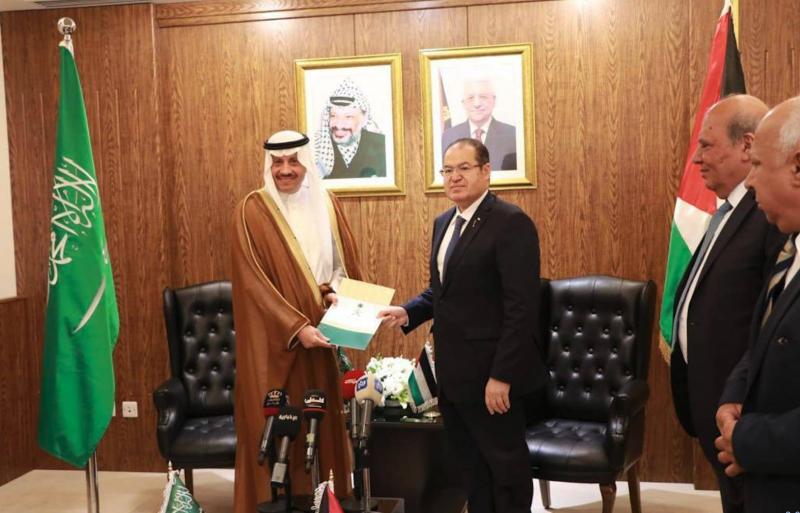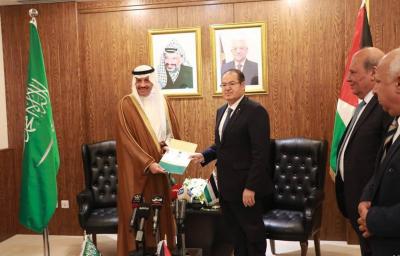Palestinian officials announced today, Saturday, that they have received a copy of the credentials of the first Saudi ambassador, in a step that demonstrates support amid Saudi Arabia's consideration of establishing official diplomatic relations with Israel. Saudi Arabia continues to defend the Palestinian cause and has not yet agreed to establish formal relations with Israel, but the United States is seeking to broker what could be a historic agreement in the Middle East, which may involve the announcement of normalization of relations between Saudi Arabia and Israel.
The official Palestinian news agency (Wafa) reported today that Saudi Arabia has decided to appoint a non-resident ambassador extraordinary and plenipotentiary to Palestine. The agency added on its official website that the Palestinian president's diplomatic advisor, Majdi Khalidi, received a copy of Ambassador Naif Al-Sudairi's credentials as "plenary and extraordinary ambassador of the Custodian of the Two Holy Mosques, King of the Kingdom of Saudi Arabia, to the State of Palestine and Consul General of the Kingdom in Jerusalem, the capital of the State of Palestine."
The agency mentioned that this occurred during Khalidi's meeting with Ambassador Al-Sudairi today at the Palestinian embassy in Jordan. Khalidi stated, "This important step will contribute to strengthening the strong and deep brotherly relations that bind the two countries and the two brotherly peoples."
Palestinian analyst Talal Awkal noted that the ambassador's appointment is a small step towards establishing a Saudi official representation office in the occupied West Bank. He added, "It is also a message from Saudi Arabia emphasizing its commitment to the Palestinian people's right to a fully sovereign state."
**Concerns of Palestinians**
Palestinian Foreign Minister Riyad Al-Maliki said last week that the Palestinian Authority, led by President Mahmoud Abbas and supported by the West, hopes to communicate with Saudi Arabia to discuss its concerns regarding potential normalization with Israel. U.S., Israeli, and Saudi officials have indicated that any agreement of this nature is likely still far off due to complex issues that need to be resolved, including escalating violence in the Israeli-occupied West Bank and the possibility of Saudi Arabia developing nuclear energy for civilian purposes.
Palestinians are worried that such an agreement could undermine support for their cause in the Arab world and weaken their hopes for establishing an independent Palestinian state.
Saudi Arabia has quietly accepted what are termed the Abraham Accords, which led to the normalization of relations between Israel and the UAE and Bahrain. When asked if he would consider making concessions to the Palestinians as part of an agreement with Riyadh, Israeli Prime Minister Benjamin Netanyahu stated in an interview with NBC this month, "The Palestinians must have full authority to govern themselves and not have any authority that makes them a threat to us." However, members of the far-right coalition he leads have ruled out making any concessions.




